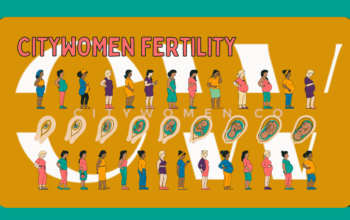
March 04, 2020 at 01:00AM by CWC
As evidenced by the dearth of hand sanitizers at your local drugstore, people are concerned about contracting COVID-19 as it spreads throughout the world. As of Monday, the disease has infected approximately 90,000 people in 65 countries. While it’s more important than ever to wash your hands, the emotional uncertainty health crises evoke is undeniably universal. And so it’s imperative to take care of your mental health if you find yourself afraid of coronavirus.
When it comes to an outbreak of this nature, we typically see a rise in four components that impact our mental stability and security: fear, suspicion, hyper vigilance, and paranoia, says clinical psychologist Aimee Daramus, PsyD. Below, she shares four tips to strengthen your mental health.
Fear: Don’t jump to conclusions from a headline alone
Your newsfeed is artery clogged with breaking news about how we’re all doomed. It’s important to stay informed, you just want to be sure that you’re getting legitimate, helpful information. You might even consider eschewing social media altogether in favor of taking a free online course to learn all the facts about COVID-19.
ADVERTISEMENT
ADVERTISEMENTKate Spade Autumn/Winter Sale |
“Be picky about where you get your facts and avoid thinking with your feelings,” says Dr. Daramus. “Fear and hope are powerful motivators, but they give us very poor guidance a lot of the time. If a piece of information makes you feel scared or hopeful, double-check to see that it’s from a good medical source before you act on it.”
Suspicion: Let loved ones help you emotionally
Every time your partner or co-worker coughs a chill runs down your spine, and it’s not a cute look. Or when you chat with your mother about travel plans she tells you to pack a face mask (okay, but face masks are ineffective against the preventing the spread of disease, mom). The idea is that you want to lean on your loved ones emotionally and perhaps virtually, while setting up neat boundaries between every civilian who thinks they’re now a Germ Expert.
“Let yourself bond with people during a scary time, but remember not to believe every rumor just because you care about the person who shared the rumor,” says Dr. Daramus. “Set up ways to connect with your support systems online or by phone in case you need to. Start a group social media page, so you can check in with people if the virus comes to your home or community.”
Bonus: You might want to isolate yourself from news sources that are reporting scary rumors, so that you aren’t thrown off base by conflicting information.
Hyper Vigilance: Be reasonably prepared
This feels a little counterproductive, but it’s all about being level-headed. I’m sure people in the office talking about how to take care like we are literally prepping for the zombie apocalypse. Like, it’s super scary to hear that Karen from marketing bought two rifles and a 48 count pack of ramen in case this is the end. And yet it can make you feel more secure if you have at least some idea on how to you’ll handle COVID-19 if it comes to your neighborhood.
“Set a plan for what you’ll do if coronavirus comes to your community or you get sick with it yourself,” says Dr. Daramus. “By having a plan, you can feel more confident about your ability to handle it without panicking.”
Paranoia: Find a way to self-care in a way that’s truly by yourself
Again, we don’t want to shut out our connections to other people entirely during this health crisis. You need other people in order to live a warm and well life. And yet if you’re suddenly terrified of what’s hiding on your yoga mat during Vinyasa Flow, it’s really okay to sit this class out.
“If you usually do your stress management in groups, such as exercise or meditation classes, start developing a relaxation routine that you can do by yourself in case classes close or you have to isolate yourself,” says Dr. Daramus.
Need to know more? This free online course teaches you everything you need to know about coronavirus. And this is why you should always wash your gloves regardless of what’s going on.
Author Mary Grace Garis | Well and Good
Selected by CWC

ADVERTISEMENT
ADVERTISEMENTUp to 30% off Gift Sets |







